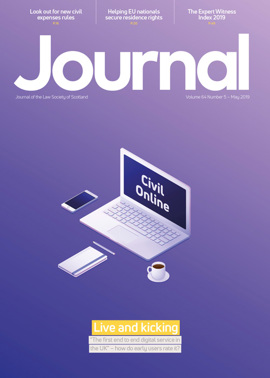Frozen out?

A 51-year-old woman is bringing the UK’s first legal challenge to legislation which enables fertility clinics to store frozen eggs for a maximum period of 10 years. Over the past decade there has been a rise in the occurrence of “social” egg freezing; and many of the women who opted to preserve their fertility when the treatment first became available in the UK are now facing the possibility that their eggs will be destroyed.
It is clear that when it comes to reproduction, the sexes are unequal. Men remain fertile throughout their adult lives. However, a woman is born with all the eggs she will ever have. By the time she reaches 30 years old, she has lost some 90% of her eggs. Furthermore, as a woman gets older, an increasing proportion of her remaining eggs are chromosomally abnormal. This explains why it is harder to become pregnant with increasing age, why miscarriage rates increase and why the rate of Down syndrome pregnancies increases. In addition, the average age of giving birth to a first child is rising as women delay having children in order to develop their careers and get on the property ladder, amongst other things. However, there is a biological price to pay for such a strategy due to their declining fertility.
Biologically, therefore, it makes sense to freeze a woman’s eggs at a young age and, should she not conceive naturally at a later age, use those frozen eggs which, other things being equal, will be of better quality. This has been termed “social” egg freezing, or “elective fertility preservation”.
In theory, any biological tissue can be stored indefinitely at -196°C in liquid nitrogen. The development of vitrification has revolutionised the process of storing eggs. Vitrification involves removing most of the water from the eggs before snap-freezing them in liquid nitrogen. The survival rates, fertilisation rates and subsequent pregnancy rates are far superior compared to the traditional method of slowly freezing eggs, which risked damage due to expanding ice crystals inside the eggs. The technology has advanced to the stage where vitrified eggs have almost the same reproductive potential as fresh eggs, making “social” egg freezing a much more attractive option for women.
Unequal outcomes
Under the terms of the Human Fertilisation and Embryology Act 1990, women who are undergoing medical treatment which is likely to render them menopausal are allowed to freeze their eggs for 55 years, regardless of how old they are at the time of egg freezing. However, the terms of the Act mean that if a woman freezes her eggs for “social” reasons, she can only do so for 10 years. Once this period has elapsed, the woman must either fertilise those eggs to create embryos or the fertility clinics are compelled to destroy them. The only caveat to this is if the woman has become “prematurely infertile” in the intervening 10 years, usually if she has had cancer therapy or surgery to remove her ovaries.
The pursuer in the action referred to seeks judicial review aimed at overturning the time limit on the basis that it is incompatible with human rights legislation, namely the right to private and family life. The discrepancy in how these two groups of women are treated, dependent on their medical and social circumstances, is scientifically baseless and could be deemed unjust. If there is thought to be a problem with children being born to “older mothers”, it remains the case that clinics must consider the welfare of any child born via fertility treatment before providing treatment.
When the Act was passed nearly 30 years ago, the technology to freeze eggs was poor and social egg freezing was considerably less widespread than it is today. Awareness of the availability and benefits of social egg freezing must be raised. If a 29-year-old solicitor freezes her eggs in order to safeguard her future fertility while she concentrates on building her career, in 10 years’ time those frozen eggs will be healthier than any egg remaining in her 39-year-old ovaries. However, as the law currently stands, if she has not met her life partner, she would either need to have the eggs thawed and fertilised with donor sperm (the subsequent embryos can then be frozen for another 10 years) or face the destruction of those eggs.
The challenge to the 10-year rule is not only of academic interest to lawyers but is also of relevance in terms of what is sometimes referred to as “reproductive equality” – the rapid decline of women’s fertility compared to men’s, during and after their 30s. Having the ability to preserve one’s fertility in order to focus on building a successful career is of enormous value to young professional women; however, a secondary issue then arises in relation to the length of time eggs can legitimately be stored. That issue may become of lesser or greater importance, depending on the outcome of the current proceedings.
In this issue
- Claiming under the advance payment scheme
- Time for a written constitution
- New form F9: worth the wait?
- Wedded to a matrimonial property regime
- Brexit divorce set to increase UK's “skype families”
- Corporate personality: Justice v Doctrine
- Reading for pleasure
- The Law Society of Scotland Expert Witness Index 2019
- Opinion: Judith Robertson
- Book reviews
- Profile: Michael Clancy
- President's column
- Is your legal data being held to ransom?
- People on the move
- Sign up – log in – action!
- Frozen out?
- Taxing times for litigators
- DNA analysis: when research just isn’t enough
- Brexit focus: EU citizen settlement remedies
- Why employers should report on wellbeing
- 3% – and then what?
- 1,000 days of mediation
- Barred from acting
- To name or not to name?
- Enter the “What I Think”
- Fixed penalties and fair trials
- Auto-enrolment: keeping employers on their toes
- Scottish Solicitors' Discipline Tribunal
- Vulnerable accused: a need for knowledge
- Burdens and who can enforce them
- Convener’s final bow
- Public policy highlights
- TCSP review update
- Westminster: answering the call
- Accredited paralegal practice area highlight: family law
- Accredited Paralegal Committee profile
- Nyona named star paralegal
- Ask Ash
- Moving nightmares part 2
- Complaints: seeking consistent practice
- Morally bankrupt?
- For the elderly: how SFE works
- Standing up to challenge






